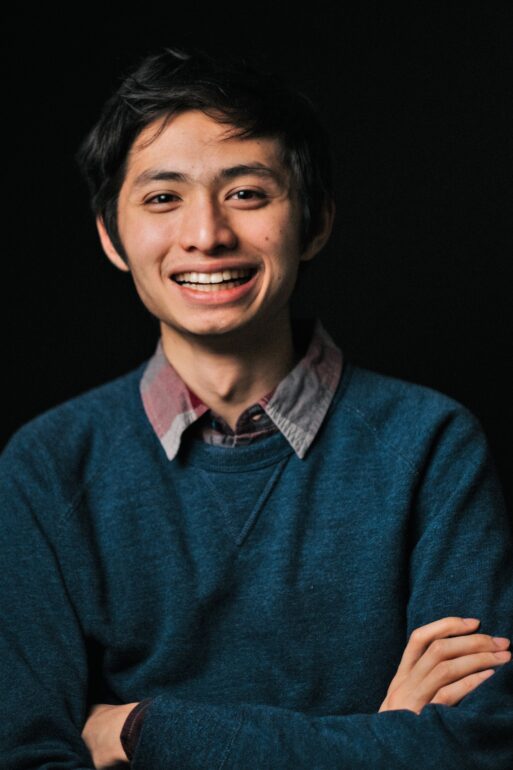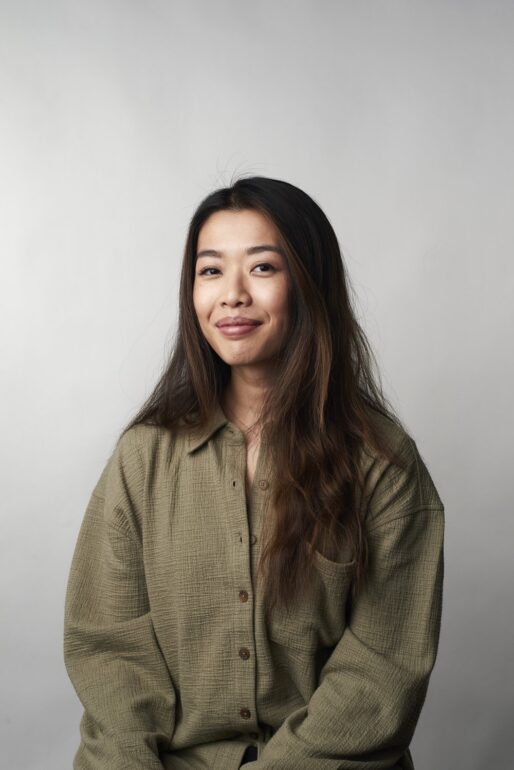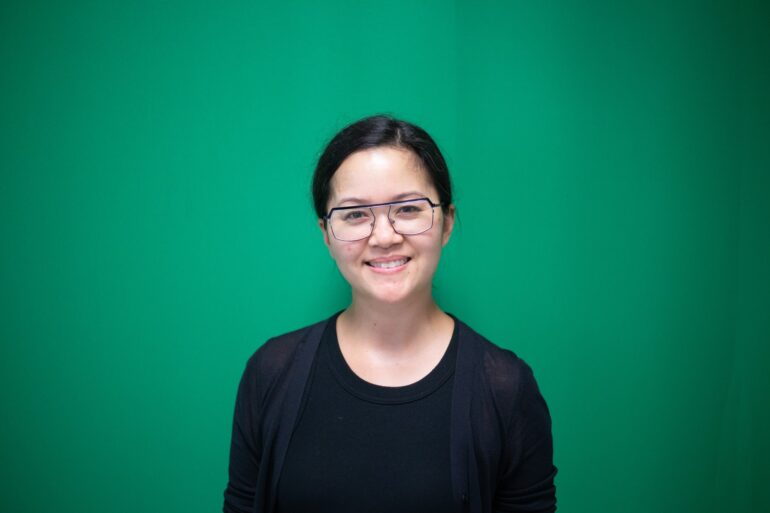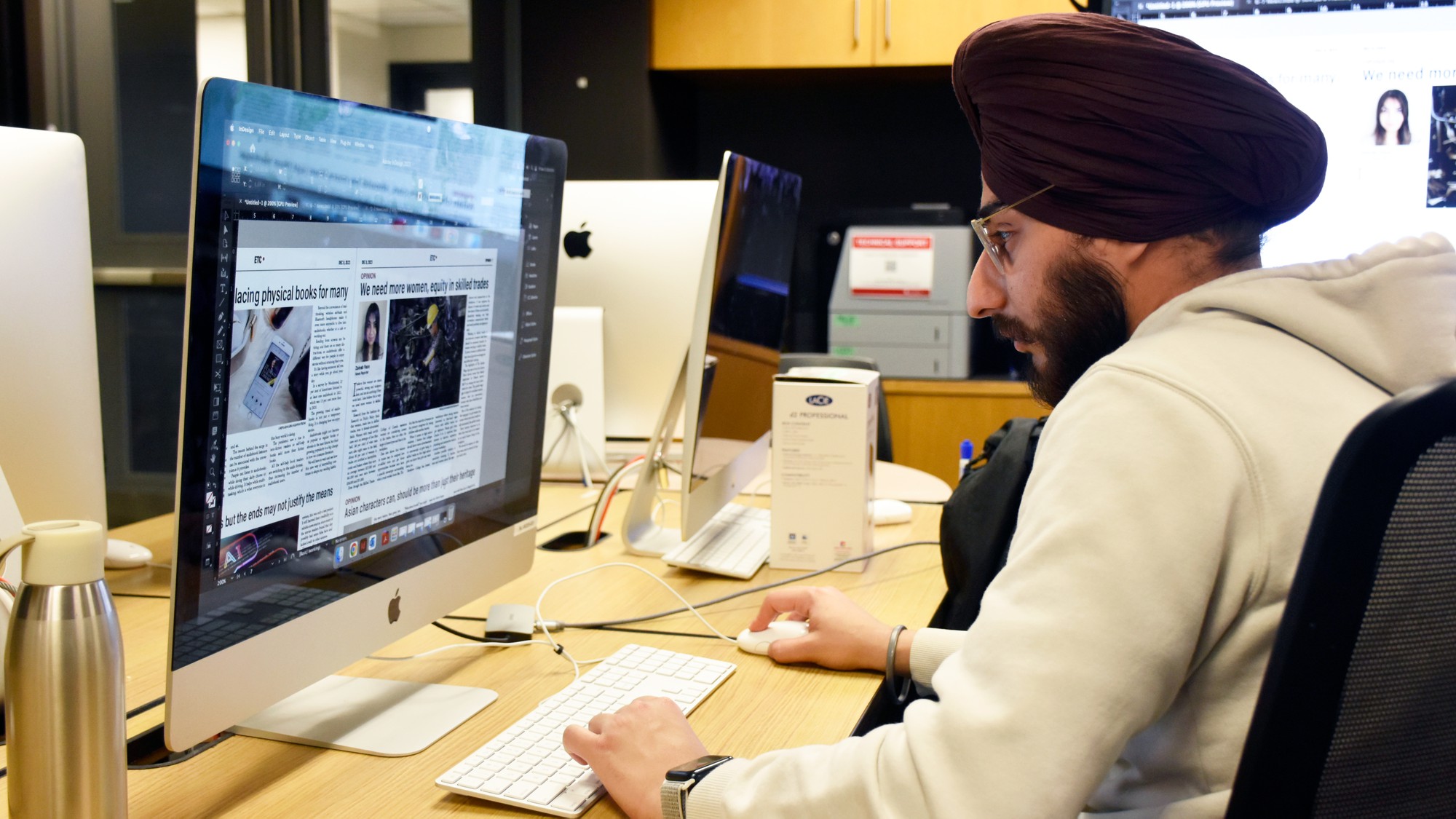Aloysius Wong said he remembers how news media wrote about frontline workers during the pandemic.
He said many pinned the PPE crisis on healthcare professionals instead of highlighting their lack of access to resources.
People forgot that front liners, some of whom are Asians, also “put themselves and their families at risk,” Wong said.
So when a new survey raised an alarm over the shrinking number of Asian journalists working in newsrooms, Wong said it might result in stories without the nuance of someone with lived experience.

Aloysius Wong is a Filipino-Canadian investigative journalist who wrote "Forever Temporary," a feature story highlighting the experiences of CBC's temporary workers. Wong told Humber News that journalism's precarity threatens inclusivity in newsrooms. "You're only going to get people who are well off, who are going to tell stories about other people that are well off to some degree and aren't connected with other communities that aren't coming from those backgrounds," he says. Photo credit: Andrew Longo
“Unless people are going out of their way to engage with communities to hear what stories are impacting them, stories just don’t get pitched that much,” Wong said.
Three successive annual surveys by the Canadian Association of Journalists (CAJ) show that racialized, women and non-binary journalists are concentrated in the most precarious positions, posing a threat to inclusive journalism.
Asian journalists, in particular, saw a 3.1 per cent decrease in their newsroom representation according to this year’s results.
Wong, a Filipino-Canadian, said this gap means telling fewer stories about and for the Asian community, a gap that could be dangerous during a time of rising anti-Asian hate.

Tiffany Lam, producer and host of TVO’s In Our Heads podcast, moved around a lot as a child. Lam said Asians tend to be curious about where they're from, influencing the stories they tell. Photo credit: Justin Morris
The consequences on the page are obvious, but producer and host of TVO’s In Our Heads podcast Tiffany Lam, whose pronouns are she/they, said that the gap also affects journalists on a personal level.
“It takes a toll on your emotional and mental health to not know when the next paycheck will come,” said Lam, an East Asian born in Scarborough. “If you have a lot of familial responsibilities, if you take care of a lot of people or have a lot of dependents, I think it’s a consideration.”
They added that intergenerational support is embedded in Asian culture.
TVO workers, including Lam, went on a strike, that began on Aug. 21 and stretched for nearly three months.
Although it was the first in the organization’s 53-year history, the strike only amplified journalism’s “precarity penalty,” a term coined by a 2015 PEPSO study.
Researchers found that even when racialized and foreign-born workers find secure employment, they still face discrimination in “accessing training, sustaining healthy households and in socializing.”
More recently, a 2021 Statistics Canada study revealed that many racialized populations, including Koreans, Chinese, South Asians, West Asians, Japanese, Arabs and Filipinos, had higher educational attainment but reported lower employment earnings and lower rates of unionization and pension plan coverage.
Wong shared the same sentiment, saying immigrants tend to “pick a career that’s financially viable and financially stable” to keep up with the rising cost of living.
“My [parents] sacrificed a lot to move here and get themselves established,” he said.
“Journalism is one of those few places that still have things like unpaid internships, and then even if you get out of school, there aren’t that many jobs,” he added.
CBC/Radio-Canada, the country’s public broadcaster where Wong works on contract, announced massive layoffs and programming cuts on Dec. 4, citing budget pressures.
Wong was spared, but 600 others were not.
Despite these hurdles, Lam said Asian journalists should be trying to pursue their passions.
“I think there’s a lot of curiosity about where we’re from and a desire to reconnect with our roots,” Lam said, quoting the slogan, “nothing about us without us.”
While admissions to some journalism programs in Canada have been paused, journalism professor Lisa Yeung said she is hopeful.
Yeung, who was born in Toronto and has Chinese and Trinidadian roots, said more than half of the students she teaches at Centennial College belong to racialized groups reflective of Toronto’s population.
“I do definitely see students who have a passion and a desire to tell stories from their communities because they feel that maybe their communities are underrepresented in media,” said Yeung, who served as an advisory board member behind a guide for BIPOC journalists by Journalists for Human Rights.
The downloadable guide explores five scenarios BIPOC journalists encounter: “deadlines, tokenism, stereotypes and assumptions, DEI competency and online hate,” said Anita Li, project lead and The Green Line CEO, in a LinkedIn post.

Lisa Yeung is an award-winning digital journalist and a journalism professor at Centennial College. She was the managing editor of HuffPost Canada's LIFE and Perspectives section, overseeing "Born and Raised," a series on the children of immigrants in Canada. Photo credit: Kai Gammage
In a follow-up email, Yeung said having allies in the newsroom and hiring Asian and racialized staff was crucial to HuffPost Canada’s goal to nurture a culture of trust.
“It was the Asian and racialized editors and reporters who pitched, chased and produced stories from their communities that they were passionate about telling,” said Yeung, who served as co-editor-in-chief before the news site shut down in 2021.
“As managers, our job was really to get out of the way and let them do their jobs,” she adds.
Apart from rethinking its culture, Yeung said that media organizations should define a “clear path” for young reporters to grow into senior journalists and newsroom leaders.
To get there, TVO’s Lam said more career development opportunities and financial aid are needed to allow disadvantaged communities to “be part of and stay” in the industry.
Lam cited a media fellowship from the Asia Pacific Foundation of Canada that lets Asian Canadians do journalism in Asia. The Canadian Journalism Foundation has also begun offering a bursary for BIPOC student journalists since last year.
Both Lam and Wong say they would like to see more organizing within Asian journalist communities.
Lam envisions a supportive space where journalists could vent about work stress and simply “hang out.”
For Wong, attending seminars that brought journalists from the Philippines to Toronto made him appreciate the value and privilege of his work and continue to inspire him today.
Lisa Yeung said there are “bright, passionate, inspired talent” that will hopefully enter newsrooms soon.
“Trust in yourself,” Yeung said. “Trust that your stories need to be told. And trust that they will enrich the world once they’re out there.”

